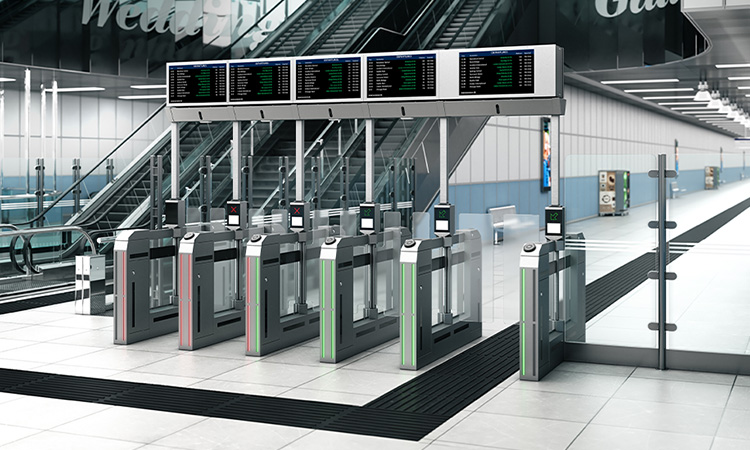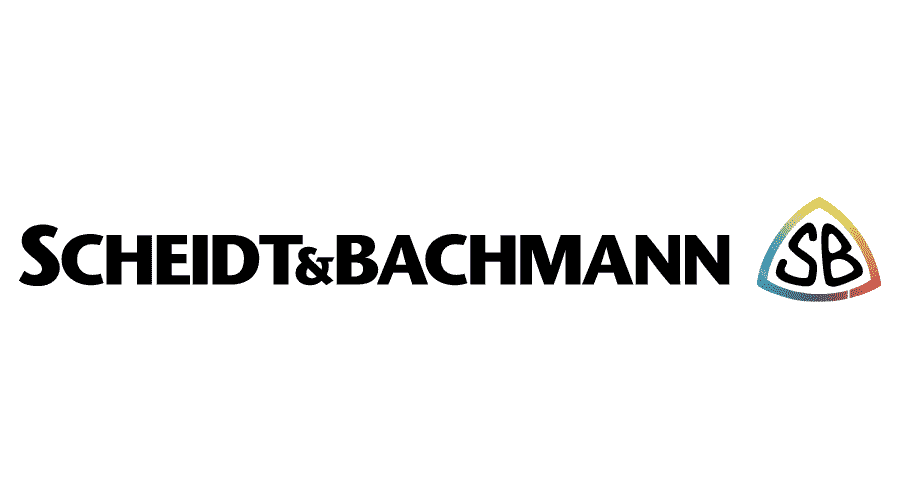A ticket-office-less rail network: How Scheidt & Bachmann is rising to the challenge
- Like
- Digg
- Del
- Tumblr
- VKontakte
- Buffer
- Love This
- Odnoklassniki
- Meneame
- Blogger
- Amazon
- Yahoo Mail
- Gmail
- AOL
- Newsvine
- HackerNews
- Evernote
- MySpace
- Mail.ru
- Viadeo
- Line
- Comments
- Yummly
- SMS
- Viber
- Telegram
- Subscribe
- Skype
- Facebook Messenger
- Kakao
- LiveJournal
- Yammer
- Edgar
- Fintel
- Mix
- Instapaper
- Copy Link
Posted: 11 September 2023 | Ben Jones - Scheidt & Bachmann | No comments yet
The fare collection sector is undergoing a transformation driven by technological advancements, changing consumer behaviours and unprecedented challenges brought on by events like the COVID-19 pandemic. In this exclusive Q&A, Ben Jones, Business Development Manager at Scheidt & Bachmann, delves into the major challenges faced by the industry and explores the trends shaping its future.


Credit: Scheidt & Bachmann
What are the major challenges currently affecting the transportation sector?
In the ever-evolving landscape of public transportation, a myriad of challenges has emerged, re-shaping the way that we perceive, plan and execute urban mobility systems.
The public transport sector finds itself at a pivotal juncture, facing a host of complex obstacles that demand innovative solutions”
As cities all over the world continue to grow and evolve, the public transport sector finds itself at a pivotal juncture, facing a host of complex obstacles that demand innovative solutions. From the bustling metropolises of Europe to the sprawling urban centres of the U.S., the shared challenges confronting these regions mirror a collective need for transformative change.
In the UK, one of the biggest challenges right now is successfully navigating the closure of ticket offices.
But this isn’t just a change that the UK industry is facing – in France, SNCF has also been gradually reducing the number of traditional ticket offices in favour of self-service kiosks, while Germany’s Deutsche Bahn (DB) is currently making similar strides towards automated and digital ticketing solutions.
It’s a natural evolution, based on passenger behaviour and expectations – but it undoubtedly puts pressure on fare collection infrastructure and forces the industry to create a seamless travel experience for everyone.
Understandably, there are fears of job losses and the impact of the changes on the disabled community, and the industry must do everything that it can to calm such concerns.
You could make the argument that this move stems from the impact of COVID-19, which caused a significant drop in revenue for transportation operators, pushing them to focus on cost-effective solutions to recover from the financial blow.
But it’s also aligned with the overarching trends of digitalisation and urban transformation that are re-shaping modern transportation systems, further emphasising the imperative for seamless, accessible and forward-looking travel solutions.
The challenge of climate change adds another layer of urgency to the on-going changes in transportation, pushing for more efficient, sustainable and environmentally-friendly solutions, which are often facilitated by the digitalisation and modernisation of fare collection and ticketing processes.
How are these challenges impacting the industry and shaping its future?
With ticket-office-less stations becoming the norm globally, train operating companies (TOCs) are now busy identifying and installing the next generation fare collection systems which will enable them to offer a frictionless service, catering to the diverse needs of passengers.
This should hopefully go some way in regaining passengers’ trust and quelling their anxieties. On the surface, it would seem that ticket office closures aren’t going to help in that respect – but it all depends on how operators demonstrate their commitment to delivering a service that meets the needs of the travelling public.
How is Scheidt & Bachmann addressing these challenges and advising their clients?
Inclusivity and accessibility are at the heart of our fare gate’s design, accommodating passengers of all abilities and needs”
With over 45 years’ global experience in the transportation industry, we have the domain know-how to act as a delivery and consultancy partner to transport companies.
We’ve recently launched the FareGo PG|50 fare gate, which is designed to tackle the major challenges facing the industry head-on. Inclusivity and accessibility are at the heart of our fare gate’s design, accommodating passengers of all abilities and needs.
For example, we’ve looked to enhance passenger flow with LED status indicators, and improved customer experience with the user-friendly placement of validation targets, the wide range of fare media accepted and fast-opening gate flaps.
Additionally, our gate provides robust revenue protection and fraud detection measures to ensure that operators can capture all of the revenue that they can in what has been a financially damaging few years. The Rail Delivery Group (RDG) estimates that, in a normal year, around £240 million is lost through fare evasion on Great Britain’s railways.
When combined with the FareGo ViTA, which transforms ticket vending machines into fully-fledged ticket counters with personal customer service, operators can bridge that gap between technology and human interaction, enhancing the overall passenger experience and engendering a sense of trust and satisfaction.
How does Scheidt & Bachmann use its core values to help clients to navigate this change and transformation process?
When developing the gate, it was a priority for us to increase security at railway stations and to ensure that only those people with a ticket have access to the station or track”
We operate in close collaboration with train companies, authorities and other stakeholders, taking their feedback into account during the development process.
We are honest and open with our customers, ensuring that we deliver a great service and product. Our focus on safety is one of our ways of building trust. When developing the gate, it was a priority for us to increase security at railway stations and to ensure that only those people with a ticket have access to the station or track. The gate’s safety features – and the soon-to-be-adopted thermal imaging technology – also ensure fast throughput and reduce passenger anxiety about barriers failing.
Ultimately, Scheidt & Bachmann remains a family-owned company; not a big, faceless corporation. Customer success is built on trust, which is why it is paramount for us – we work hard to develop, maintain and protect this trust.
While we’ve grown considerably over the years – having expanded to operate in 50 countries – we still hold onto that family ethos: accessible, approachable and deeply invested in the success of our customers.
As a fifth-generation family-owned company, our roots in the industry run deep, and we take great pride in the long-lasting relationships that we have built with our clients worldwide.
How is Scheidt & Bachmann responding to the technological disruption and transformation within the transportation sector?
Over the past few years, we have undergone our own transformation, anticipating the shifts in the industry landscape. As a continuously evolving entity, we not only have consistently integrated the latest technologies into our solutions, but have also transitioned into a comprehensive system solution provider with a significant proficiency in IT services.
This evolution has seen us transition from being predominantly recognised as a hardware manufacturer to fully embracing our role as a technology-driven company. This transition has been marked by strategic investments to incorporate new competencies and skills, from change management and data expertise, to artificial intelligence (AI) and automation.
This shift in our focus has empowered us to offer cloud-based solutions and maintain a pioneering stance in the on-going digital revolution.
How has the COVID-19 pandemic impacted fare collection technology development at Scheidt & Bachmann?
While the pandemic caused a halt in train travel and a drop in revenue for our customers, it also gave us an opportunity to re-think and re-design our offering”
COVID-19 provided both challenges and opportunities for us. While the pandemic caused a halt in train travel and a drop in revenue for our customers, it also gave us an opportunity to re-think and re-design our offering. I’m not going to sugar-coat it – it was a tough time for us, as our customers simply couldn’t operate for a period and this had obvious knock-on effects for our business. But we took this time to create products that would be cost-effective for our customers while providing the best possible service and travel experience. We also supported our customers during this difficult time, which they really appreciated. One thing that we used this time for, was to go away to confirm and identify our customers’ primary pain points – these included a lack of data sharing, high costs of gate installation and repair, lack of weather resistance and more – and to deliver solutions such as the advanced FareGo PG|50 fare gate.
Looking ahead, what future trends do you foresee in the fare collection market, and how is Scheidt & Bachmann preparing for them?
The ever-evolving landscape is witnessing the rise of trends such as ID management, offering heightened security and convenience for passengers. Alongside this, the concept of Mobility-as-a-Service (MaaS) and the expansion of intermodal services are gaining prominence, with technology platforms acting as catalysts for seamless travel experiences.
Currently, we are actively exploring trends such as facial recognition and biometrics, both of which hold the promise of enhancing security while elevating the overall passenger experience.
As we move forward, our commitment remains unwavering in collaborating closely with our customers and stakeholders. Together, we are dedicated to diligently enhancing access to sustainable mobility for all.




Related topics
Passenger Experience, Sustainable Urban Transport, Ticketing & Payments
Issue
Issue 3 2023
Related countries
France, Germany, United Kingdom, United States
Related organisations
Scheidt & Bachmann
Related people
Ben Jones








